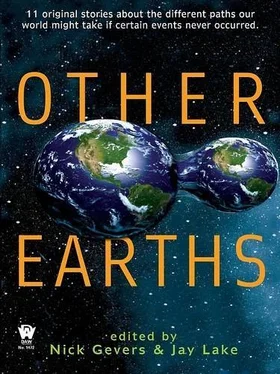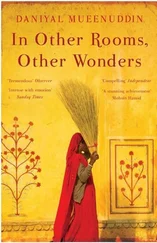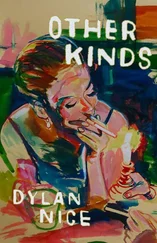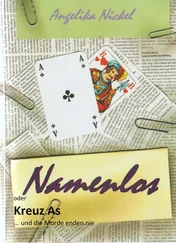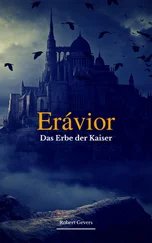Hunyor walked to Ny’rfa and stood before her, then held out his hands. Slowly, reluctantly, she put her hands in his. He spoke, a single word, then untied the leather from her wrists. Ny’rfa pointed to the villagers. “Them too,” she said. “Untie them too.”
Magyar clutched Ha’rsfa’s shoulder and shouted with triumph. He turned to Demas and said—
“This is your tribe,” Demas translated. “This is your home.” And through her tears, H’rsfa saw that the Horsemen were untying the villagers’ hands.
“So Ny’rfa and H’rsfa married Hunyor and Magyar. They learned the language of their husbands, and took names in that language. Ny’rfa became Tünde, and Ha’rsfa became Csilla. Be careful, you’ll spill your water. Is your name T̈nde, then?”
She shook her head.
“Csilla? Welcome to my house, Csilla. You’ve been very brave, like a Daughter of the Moon.”
Csilla put the cup on the table beside the bed. “What happened then?” Her voice sounded hoarse, like a rusted lock.
“The Daughters of the Moon married Horsemen, except for Ibolya, who became a healer, collecting and studying the plants of the countries they traveled through. They traveled west, following the falcon’s flight, which the Horsemen had taken for an omen. Finally, they settled in the lands about the river Danube. Their children played with the children of the tribe, and those children’s pale faces, their hair as green as the leaves of the forest, were seen as signs of luck, the blessing of the Forest Goddess. But they could not touch metal, and they would not eat meat. So the tribesmen called them the T̈nde’r, after T̈nde who had married Hunyor, which means the Fairy Folk, and always regarded them as different from themselves.”
* * *
A sparrow was singing in the linden tree outside the window. Csilla could identify the tree by its heart-shaped leaves. Her father had taught her the shapes of all the leaves …But she did not want to think about her father.
Sunlight had dried the rain. The linden was in flower, and its scent filled the room. She was sitting up in bed, leaning against the pillows, listening to the sparrow. How cool the pillows were, how clear the sunlight.
She whistled, a tune like the sparrow’s song, and it stopped to listen to her, then hopped down to the windowsill, and onto the table, and onto the finger she held out for it.
“Like Tünde,” said Mrs. Mada’r, standing in the doorway. The sparrow, startled, whistled and flew out the window. “Do you think you can eat some cucumber salad?”
Csilla nodded.
“I made it with just a bit of sour cream.”
“My grandmother always said it was best with sour cream,” said Csilla.
“Well, I’m glad to hear I made it like your grandmother! Here, take these.” Mrs. Mad’r handed her a napkin folded around two slices of brown bread, a wooden bowl filled with cucumber salad, and a wooden spoon. She sat down beside the bed in a carved wooden chair.
When Csilla had eaten the cucumber salad and both slices of bread, Mrs. Mad’r said, “Can you talk about it now?”
Csilla shook the breadcrumbs from her napkin onto the table and whistled. The sparrow flew through the window and landed on the table. He picked up as many of the crumbs as he could, tilted his head to look at her, then flew off again.
“He’ll be back,” said Mrs. Mada’r. “I think he has a family. There’s a nest in the linden tree, and several days ago I saw brown heads poking out of it. I think there’s a Mrs. Sparrow and some young sparrows waiting for him.” She paused, then said, “Csilla—”
“My father sent me away! And I had to lie in the bottom of a car, and that woman only let me out at night, and I thought I was going to die. And then on the airplane and in the train I wished I had died. I wish I were dead now.” Csilla covered her face with her hands. The tears that she had not cried, not since her father had told her, “You have to leave Budapest—as quickly as possible, Csillike,” came now. She shook with them, violently, like a tree in a storm. Then, suddenly, she felt a wave of nausea, and the bread and cucumber salad were no longer sitting quietly in her stomach—
“That’s all right,” said Mrs. Mada’r. “I can wash the blanket. But you have to stay quiet, very quiet for a while. You’re still sick from the metal in the car. Helga tried to protect you as well as she could with blankets, but remember that you breathed in metal for three days. It will be a while before you feel well again.” She took the blanket from the bed and put it in a heap on the floor.
“I could have helped him!” said Csilla, wiping her mouth with the napkin, ashamed of herself. “I was helping him. Why did he have to send me away?”
She could feel Mrs. Mada’r’s hand on her arm. “I’m sure he sent you away because he loved you.”
Csilla turned to look at her, furious. “How do you know! You don’t know anything about him, or me! Who are you, anyway? Who are all of you, you and Helga and that woman who brought me here, who squeaks like a mouse?”
Mrs. Mada’r reached up and unwrapped the turban around her head. Her hair fell down around her. Green as leaves.
“Oh,” said Csilla. For a moment, she could not speak. Then she said, “Not even my grandmother’s hair was as green as yours, and my father says she had more Tünde’r blood in her than anyone in Hungary. That’s where it comes from, doesn’t it? From the Daughters of the Moon?”
“Yes,” said Mrs. Mad’r. “My hair and yours, although you don’t have quite as much of the T̈ündér blood as your grandmother. Your mother was not one of the T̈ündér, was she?”
“No,” said Csilla. “She died when I was only a baby. And then my grandmother died last year, and now Papa …”
“Hush,” said Mrs. Mad’r. “Remember, you have to stay quiet so you can get well. Let me put this blanket in the tub to soak—and the napkin, while I’m at it. I’ll be back in a moment.”
When she returned, Csilla was still sitting on the bed, staring out the window. “I’ve brought you more water,” she said, handing Csilla the green cup. She paused, then added, “We’ll have to talk about what happened—soon. But for now, why don’t I tell you another story?” She waited for a moment for Csilla to answer, but Csilla was silent. So she began, “The Daughters of the Moon died, eventually. They had mortal blood in them, as well as the blood of the Moon, and they were not eternal. But their children, the Tünde’r, lived peacefully among the farms and villages of Hungary, until the church decided that they were children of the Devil …”
Reluctantly, Csilla wiped her eyes with her hands and settled back against the pillows to listen.
Erzsébet’s Story
“Erzsike!”
“Shhh,” said Erzse’bet, putting one finger to her lips. She leaned closer to the chapel door, which was open just enough to let a sliver of torchlight fall on the stones of the courtyard. “I think it’s the landgravine.”
“You’re supposed to be in bed already,” said M’rta, but her voice was low, and she too leaned closer to hear what the landgravine was saying.
“I have sent for Ludwig. He would prefer to stay at the university, but I’ve told him it’s time he assumed his father’s position. How peaceful the landgrave looks, as though he were sleeping. A pity if, as you tell me, his soul is suffering the torments of hellfire.”
“That, I’m afraid, is the penalty for excommunication.”
Poor old landgrave. Erzse’bet had seen him earlier that day lying in the chapel beneath a pall of crimson velvet, looking more peaceful than he had ever looked while alive. How could the landgravine speak that way about him? And who was that other voice?
Читать дальше
